
1.請各位教職員生務必依照校方規定撰寫作者單位,以利申請校級論文獎勵金以及醫學科技學院論文獎勵金。(校級論文獎勵金申請資格請參照研發處規定辦理。) 2.院級論文獎勵金審查,未來如未依照校方規定撰寫作者單位,將取消該篇論文之獎勵金申請資格。(本審查規定經2020.07.27(一)1082醫科院第七次院務會議決議通過)

1.請各位教職員生務必依照校方規定撰寫作者單位,以利申請校級論文獎勵金以及醫學科技學院論文獎勵金。(校級論文獎勵金申請資格請參照研發處規定辦理。) 2.院級論文獎勵金審查,未來如未依照校方規定撰寫作者單位,將取消該篇論文之獎勵金申請資格。(本審查規定經2020.07.27(一)1082醫科院第七次院務會議決議通過)

7/3中午醫科院與預備升等的教師們針對爭議性期刊論文的討論會圓滿落幕,感謝參與的所有老師。討論會上和與會教師們達成升等論文計分共識,今年起會陸續新訂/增修本院升等審查條文並公告。其他教師升等規定,請依校方辦法為準則辦理。

依2023.07.03召開之醫科院爭議性期刊論文的討論會共識: 1.掠奪性期刊即日起一律禁止所有態樣使用/認列。 2.博士論文畢業條件與巨量期刊Mega Journal相關規範依校級會議決議執行: (A)舊生設立兩年緩衝期,兩年後發表於Mega Journal之論文將不得列為畢業論文。 (B)自112學年度起入學新生全面實施發表於Mega Journal之論文不得列為畢業論文,請各學院與新生充份溝通並於新生說明會宣導。

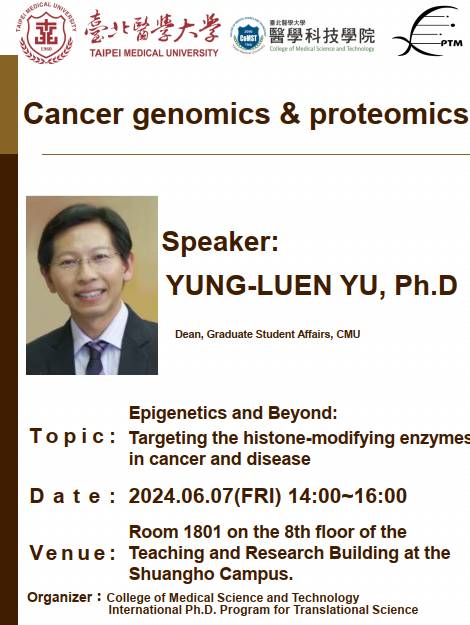
2024.06.07 (W5) 14:00-16:00,Special Lecture on Cancer genomics & proteomics:Epigenetics and Beyond: Targeting the histone-modifying enzymes in cancer and disease.. @ Shuang-Ho Campus, Teaching & Research Building, 8F Meeting Room 3.

本學系主要培育醫學檢驗專業人才及生物技術產業人才,培育學生具備〔臨床醫學檢驗專業能力、生物技術與生技產業發展能力、醫學研究發展能力、人文關懷及社會關懷〕之核心素養。畢業生可報考國家醫事檢驗師高考取得證照,也可往生技產業發展,工作之選擇具多樣性。
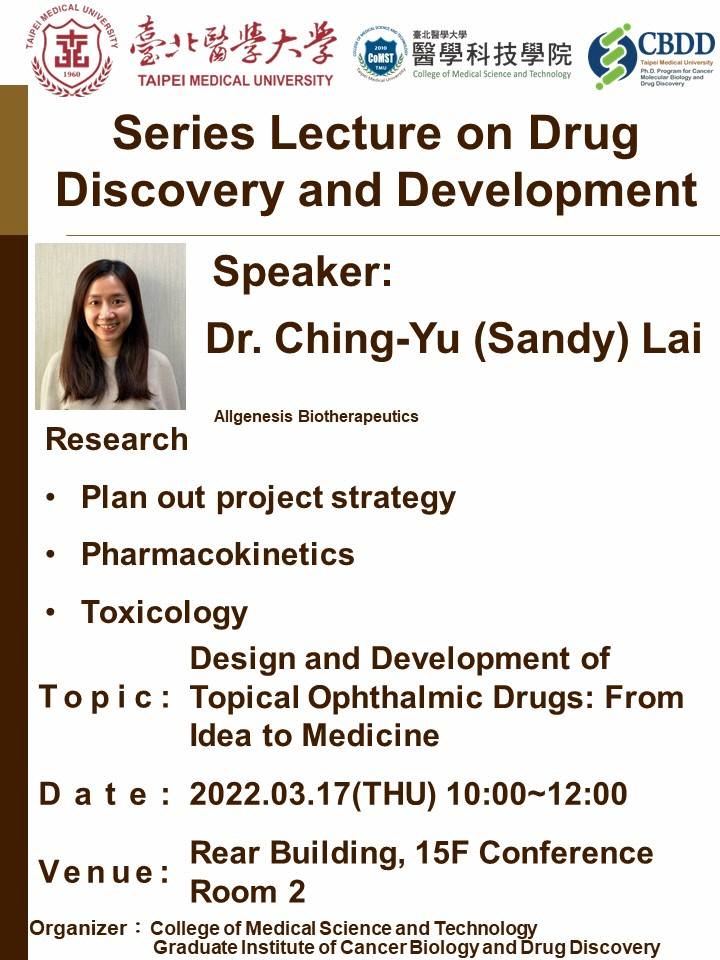
2022.03.17 (W4) 10:00-12:00, Series Lecture on Drug Discovery and Development - Design and Development of Topical Ophthalmic Drugs: From Idea to Medicine @ Rear Building, 15F Conference Room 2
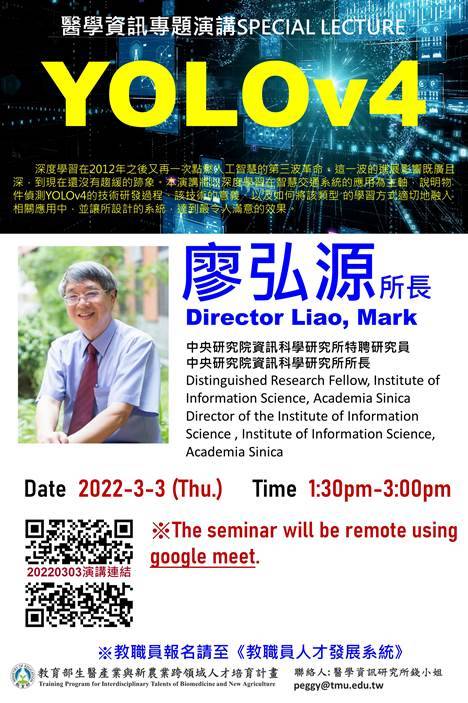
2022.03.03 (W4) 13:30-15:00, Special Lecture - YOLOv4 @ Meeting room: https://meet.google.com/rbh-wdgv-ezr
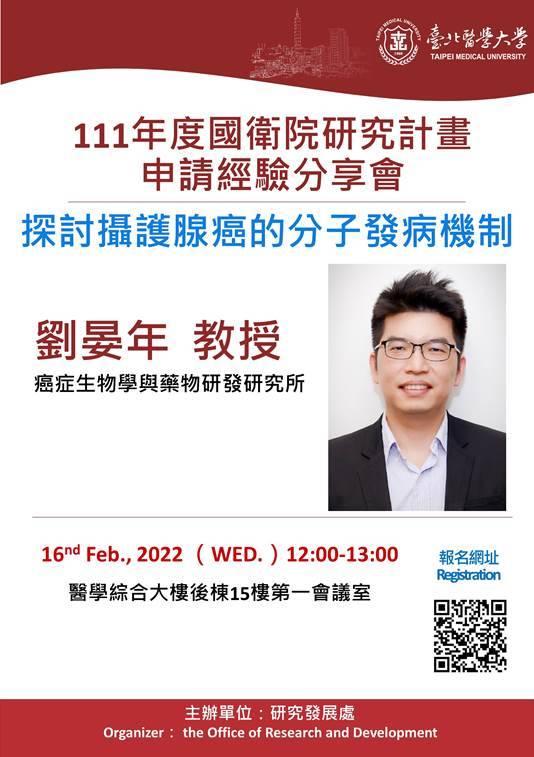

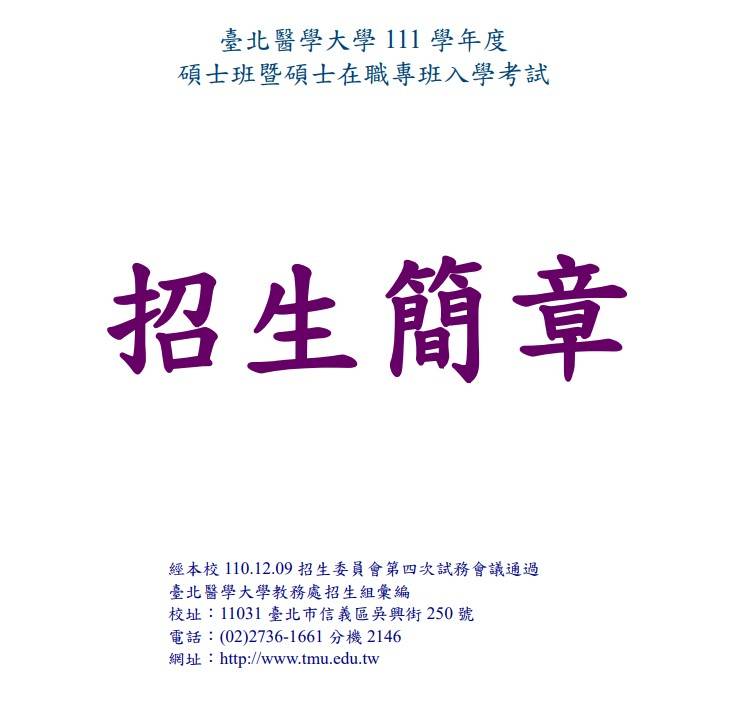
網路報名: 111.01.06(週四)09:00起~111.01.17(週一)18:00止 報名方式: 一律採網路報名(網路填表並上傳報名相關資料,報名流程請詳閱招生簡章說明),恕不受理現場報名。
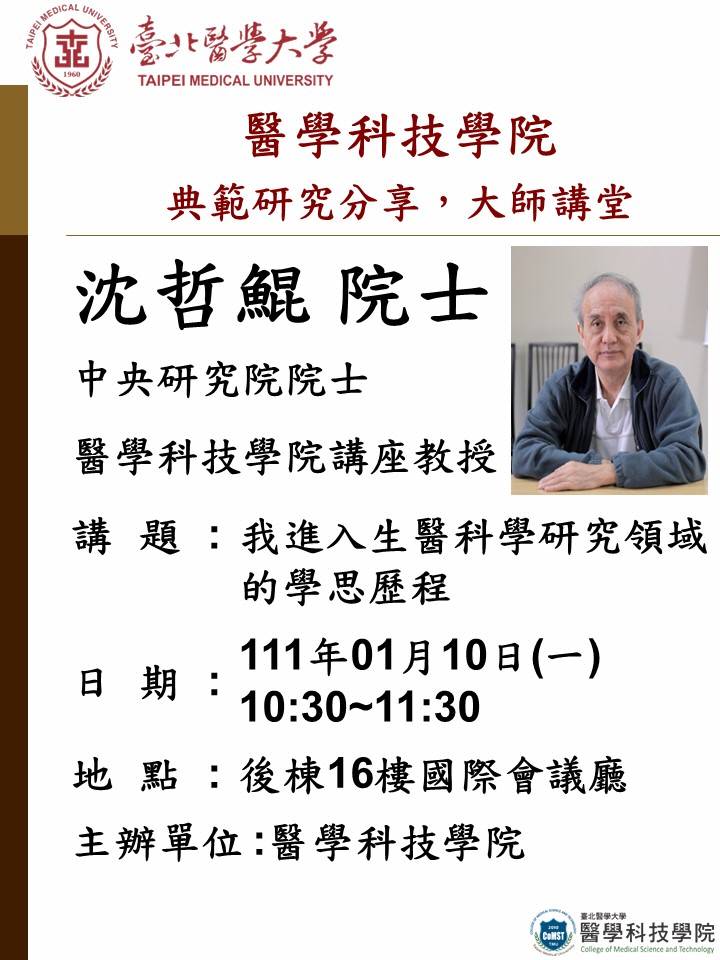
2022.01.10 典範研究分享,大師講堂-沈哲鯤院士,演講時間10:30-11:30,地點:校本部後棟16樓國際會議廳。演講題目:我進入生醫科學研究領域的學思歷程。
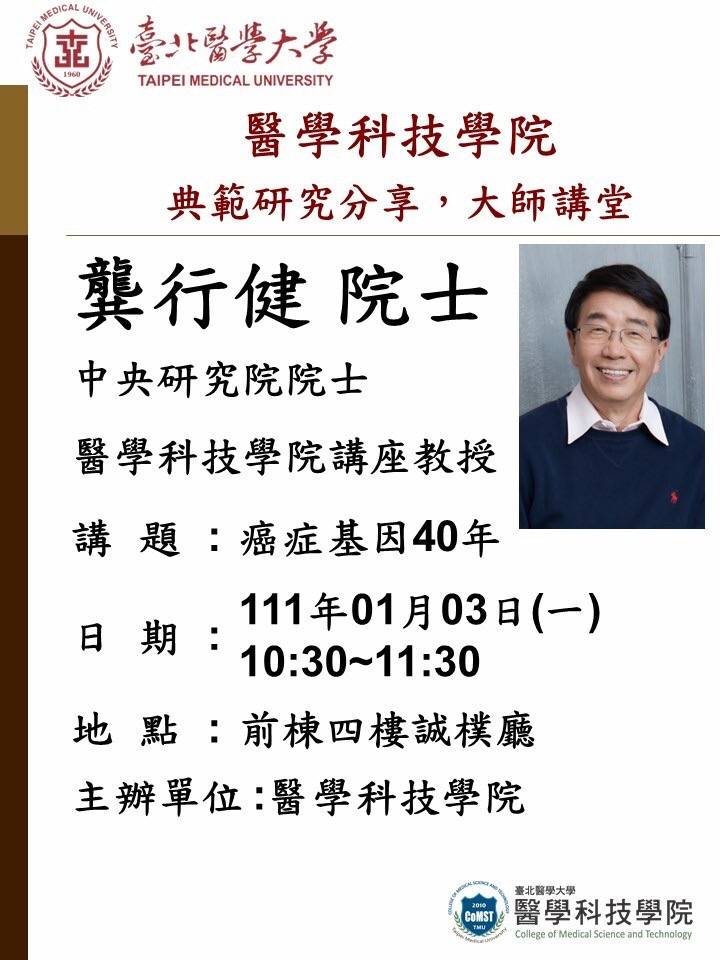
2022.01.03 典範研究分享,大師講堂-龔行健院士,演講時間10:30-11:30,地點:校本部前棟四樓誠樸廳。演講題目:癌症基因40年。
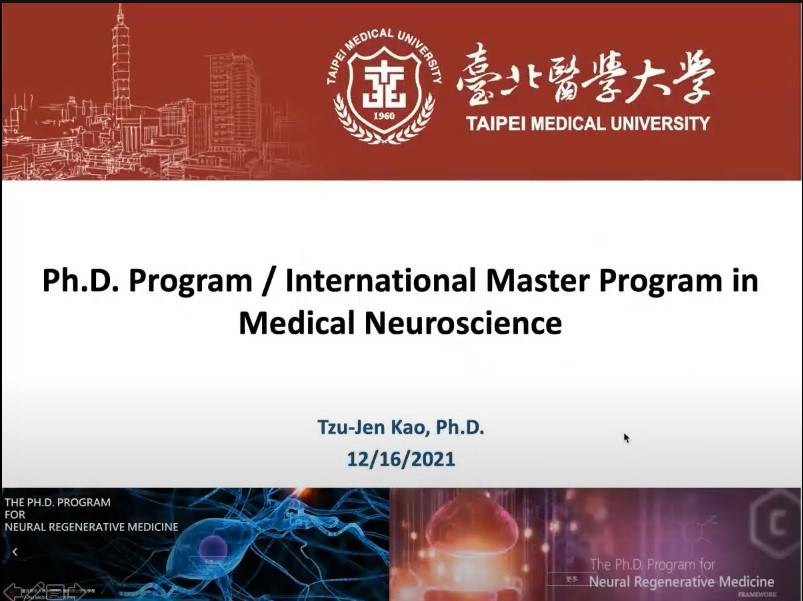
Neuroscience research has always been a competitive and popular field of study in biomedical science around the world. Being one of the prime research focuses, neuroscience research in TMU continues to develop vastly over the past few decades. In this session, we introduce you the Ph.D. Program, and the newly added Master Program, of Medical Neuroscience, including faculties with a variety of research interests, the offered courses with comprehensive coverage in neuroscience, and sufficient resources in all aspects. Our primary goal is to ensure the complete training of new talents in neuroscience research. Please join this session if you are interested in graduate study in neuroscience.
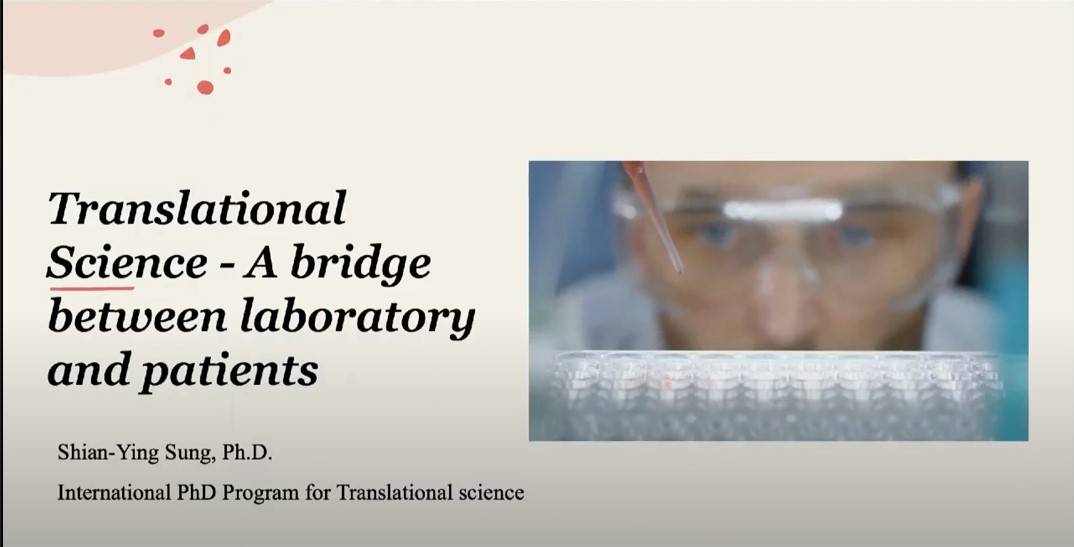
Translational medical research is a critical issue in recent biomedical research. However, most translational research was conducted in animal studies and confirmed by clinical samples without additional action. There are very few success stories of moving from bench to the bedside, specifically in the East Asian scientific society. The central concept of translational science is designed to move basic research into clinical care at the patient’s bedside and take the messages from the clinical application back into the research environment. However, the connection between basic research and clinical application involved many barriers, such as transgenic animal models for disease research, structure chemistry, PDX model for drug validation, bioinformatics, different background in disease mechanisms, therapeutic targets, and clinical trials, etc. To build a solid team for bridging between basic scientists and clinical healthcare experts, Taipei Medical University established the program for translational research. This program no longer focuses on his/her immediate research goal. We gather experts with various backgrounds, including experts in structural chemistry, biology, biochemistry, animal models, drug screening, antibody drugs and clinical trials. We built a research team and formulated into the department to establish the ability to use deductive logic to explain research results and build a super-highway for clinical trial and clinical practice. We welcome anyone interested in the research of biomedical entrepreneurs to join us in translational research.
Taipei Medical University (TMU) offers a trio of d ...
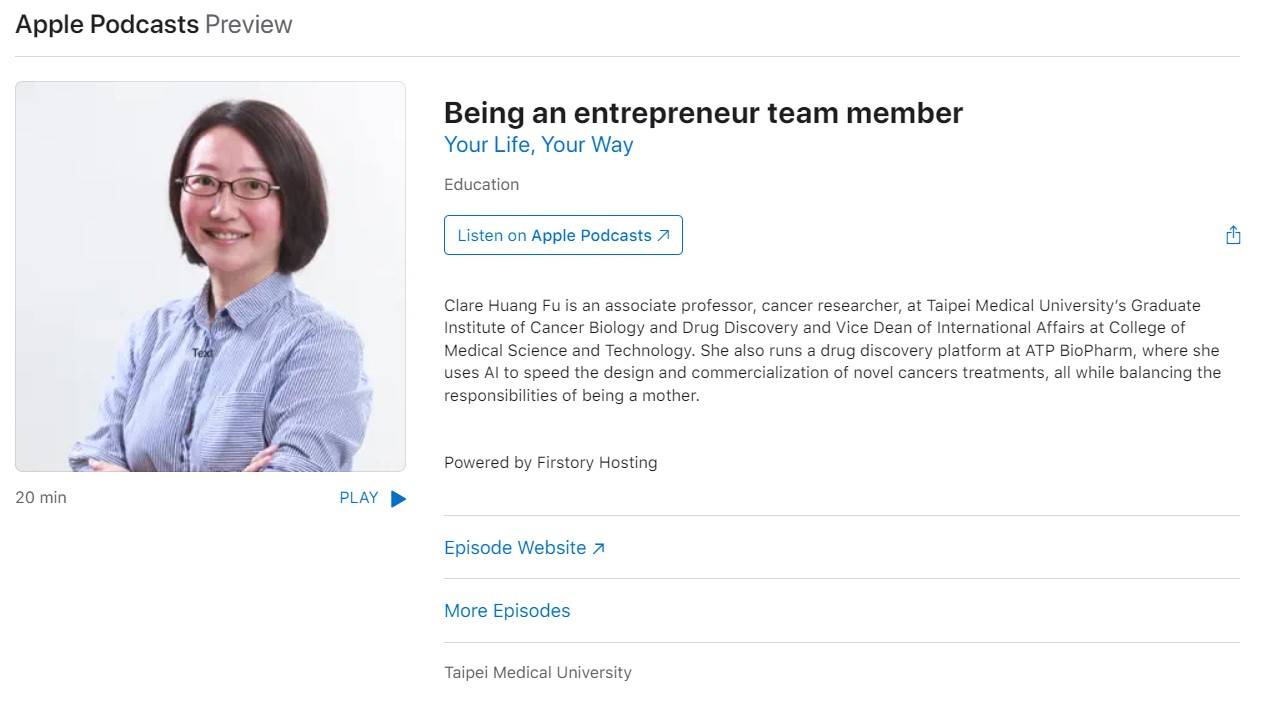
Clare Huang Fu is an associate professor, cancer r ...

Translational medical research is a critical issue ...

Neuroscience research has always been a competitiv ...
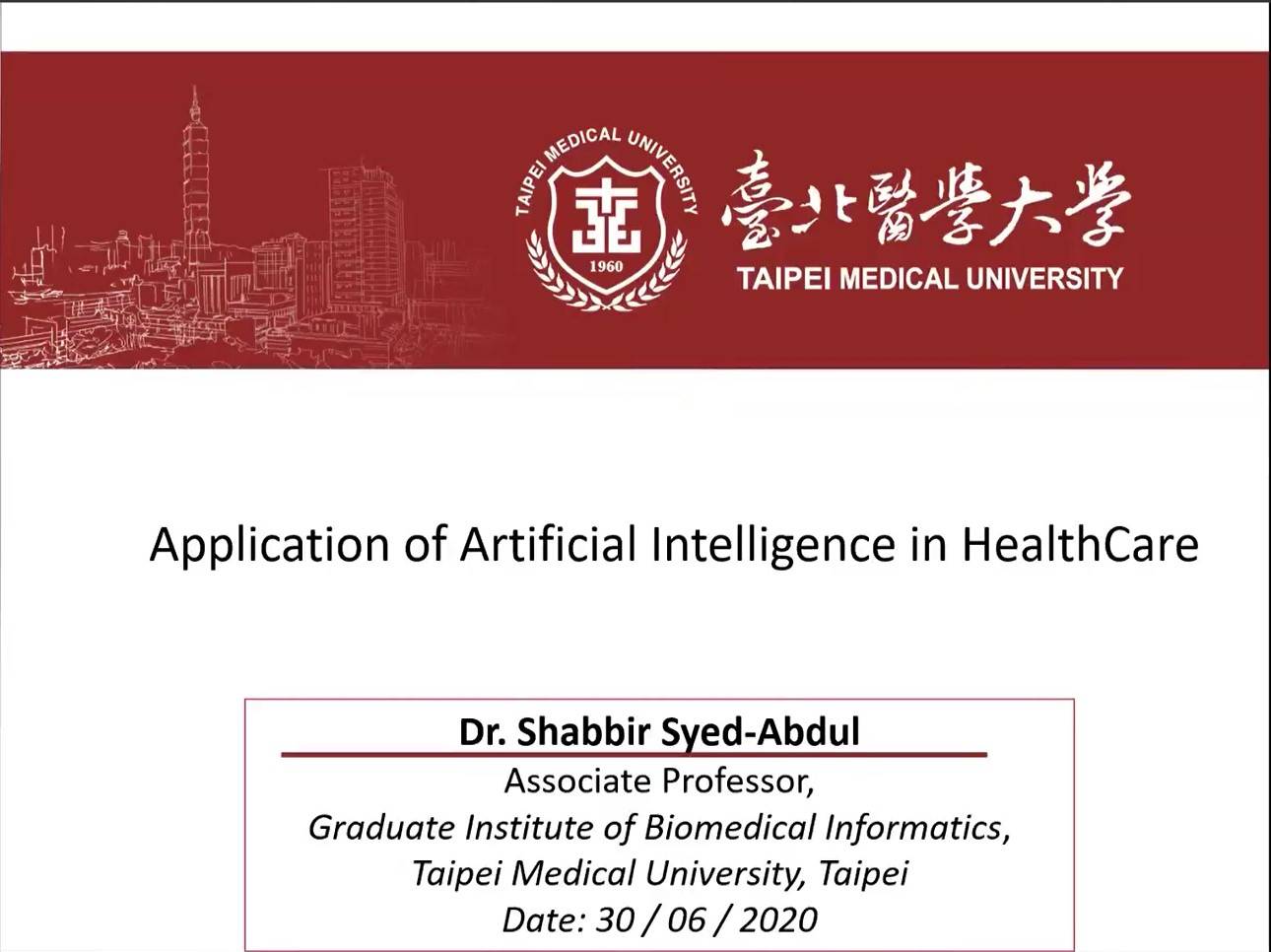
Artificial Intelligence of Things (AIoT) is the co ...